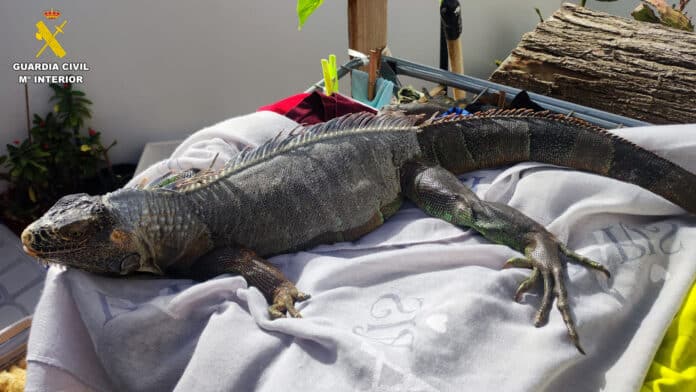
- Conducted across Spain, the operation uncovered 193 administrative violations and 11 criminal offenses.
- Key offenses involved violations of animal health regulations, infectious disease control, pet ownership laws, and the Natural Heritage and Biodiversity Act.
April 2, 2025 – The Civil Guard has presented the results of Operation “Thunder” in Spain, an initiative aimed at combatting the illegal trafficking of protected species and the commercial trade of species listed under the Convention on International Trade in Endangered Species of Wild Fauna and Flora (CITES).
Seprona, the environmental unit of the Civil Guard, carried out 438 inspections, uncovering 193 administrative infractions and 11 criminal offenses, leading to the arrest or investigation of 13 individuals. Authorities seized 192 live specimens and 50 inanimate wildlife products, including ivory, tusks, animal skins, and body parts.
Criminal and Administrative Offenses
Most criminal offenses were linked to document forgery, along with one case of smuggling and one case of animal abuse related to protected species trafficking.
Among the administrative violations, the most common offenses included failure to comply with animal health regulations, infectious disease control (epizootics), pet ownership laws, and CITES-related biodiversity protection laws.
A key focus of this year’s operation was identifying illegal timber imports, particularly wood from Russia and Myanmar, which are banned under EU trade restrictions.
Notable Operations
- Tenerife: Civil Guard officers discovered 32 live specimens hidden inside a vehicle, including CITES-protected species such as the red-footed tortoise, the Mexican orange-knee tarantula, and the red-rump tarantula. Authorities also found invasive and native protected species, including corn snakes and the Iberian ribbed newt.
- Alicante: Officers seized 18 live turtles of threatened and internationally protected species. The animals were transferred to the Santa Faz Wildlife Recovery Center.
- Telde (Las Palmas de Gran Canaria): A house search led to the seizure of 31 animals, including tarantulas, a highly venomous yellow scorpion (for which no antidote was available in the Canary Islands), a python, turtles, and lizards. Authorities also found invasive species such as giant African snails and California kingsnakes.
- Huelva: A suitcase hidden inside a vehicle contained 98 live songbirds, including 80 European goldfinches and 18 siskins, both of which are protected under national law. The suspect, who was unable to provide legal documentation for the birds, was investigated for criminal charges and fined for administrative violations.
European Multidisciplinary Platform Against Criminal Threats (EMPACT)
This operation was supported by an international cyber patrol initiative under the European Multidisciplinary Platform Against Criminal Threats (EMPACT). Environmental crime specialists from Croatia, Denmark, Spain, Finland, France, Hungary, Italy, Portugal, the Czech Republic, and the United Kingdom participated, along with NGOs IFAW and GITOC. Europol coordinated the joint efforts, and for the first time, Interpol participated in this type of cyber patrol to facilitate global intelligence sharing on wildlife trafficking.
For the past two years, the Civil Guard has been leading online investigations into illegal wildlife trade, with support from the private sector for technical resources, operational assistance, and investigative training. The initiative was carried out in collaboration with Universae and The Intel Academy, specialists in open-source intelligence and investigative methodologies.
EMPACT is a key EU tool for structured, multidisciplinary cooperation in the fight against organized crime and serious international offenses. It is led by EU Member States and supported by European institutions, agencies, and law enforcement bodies.




